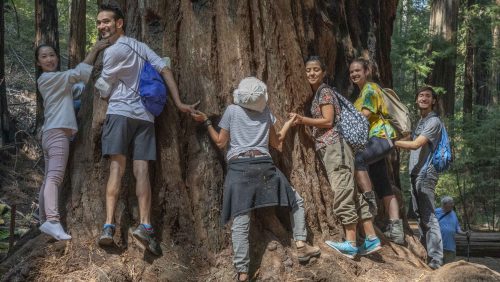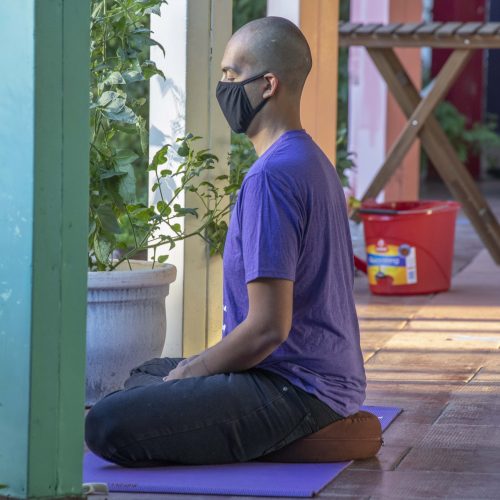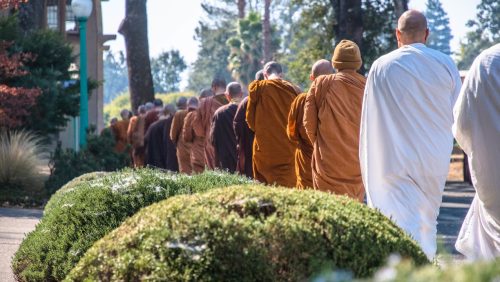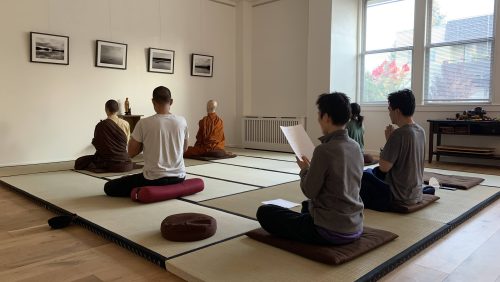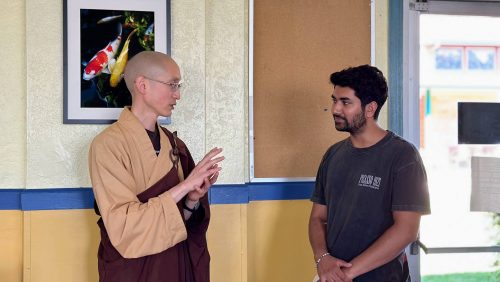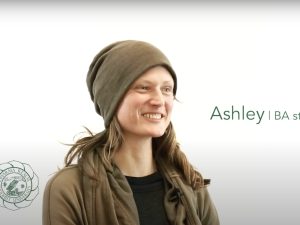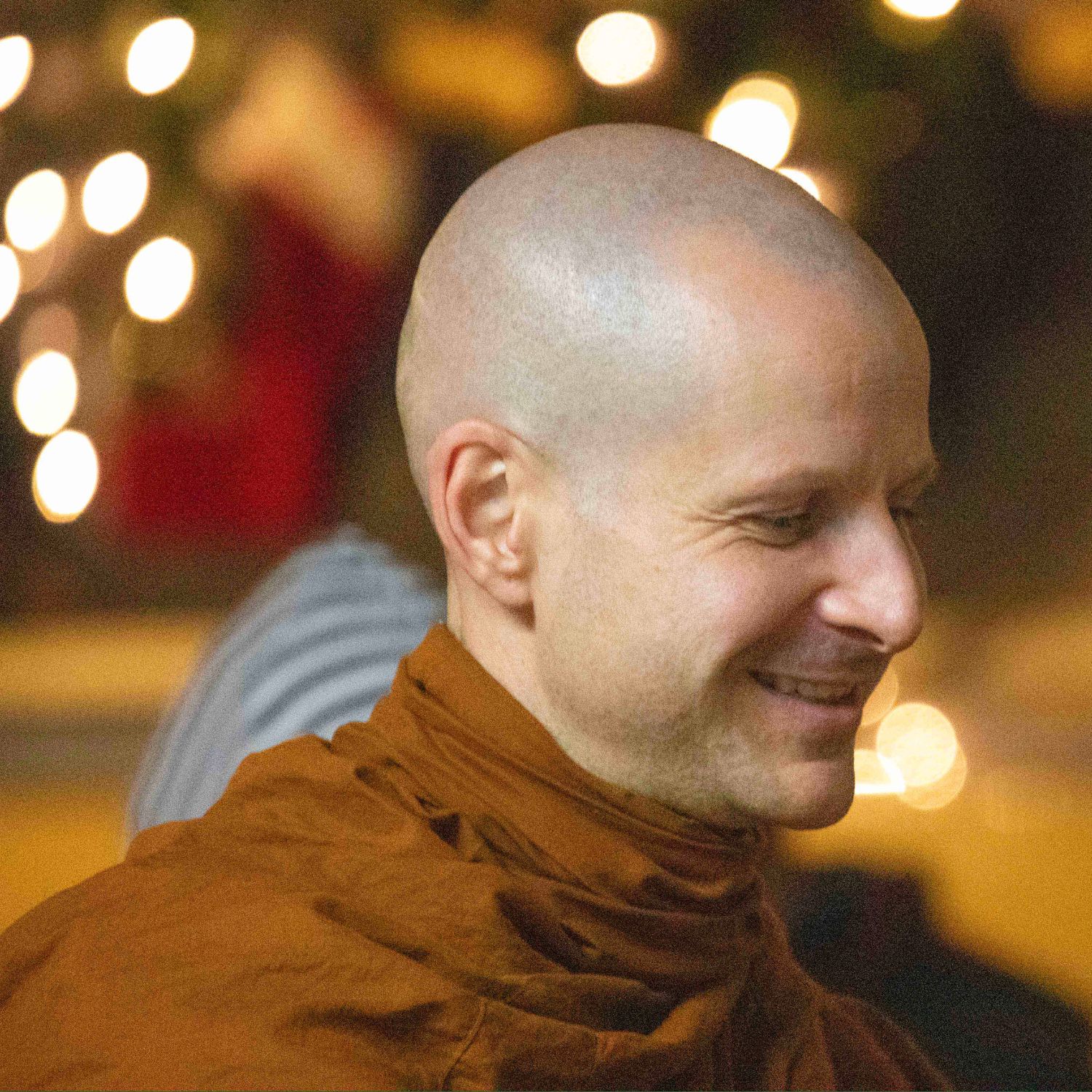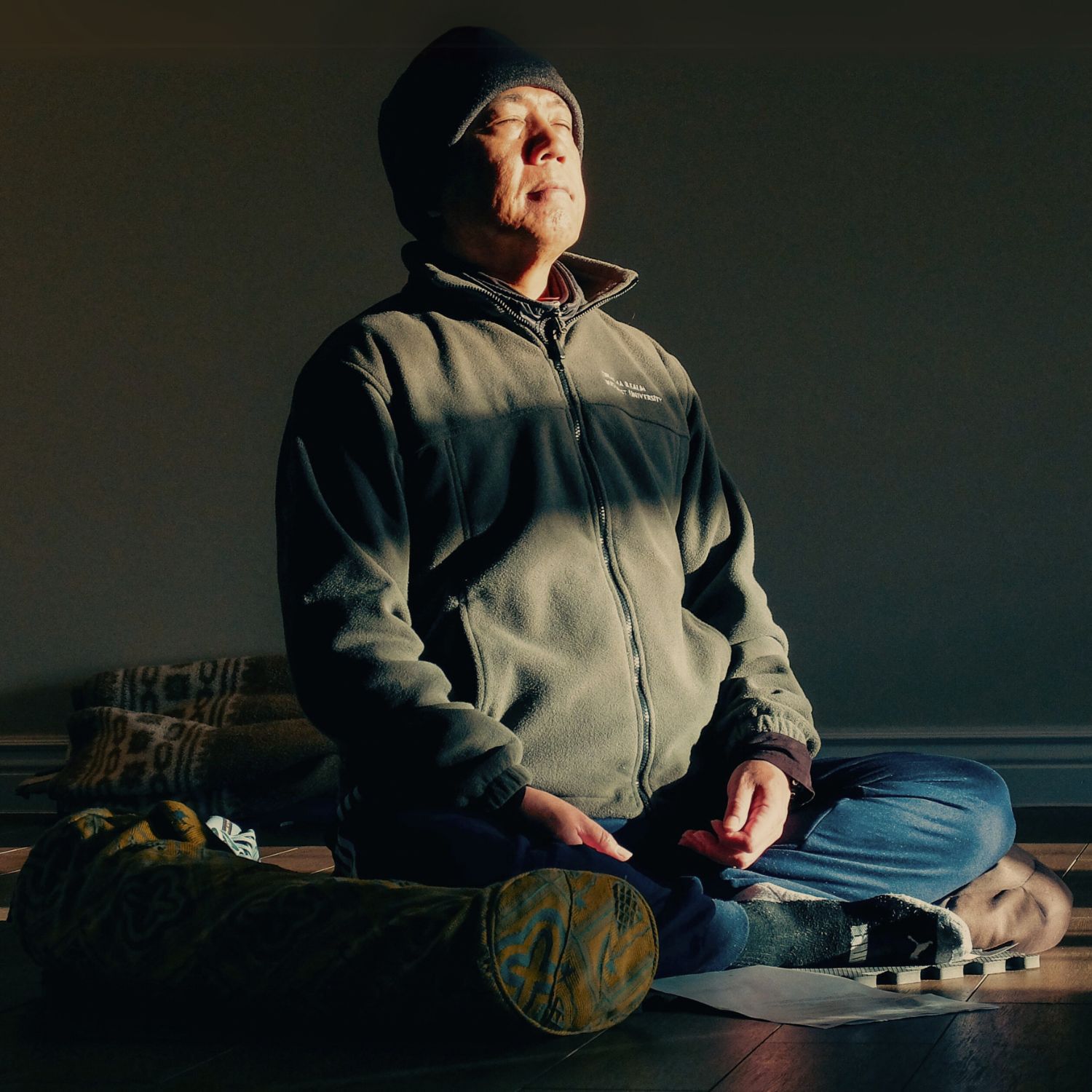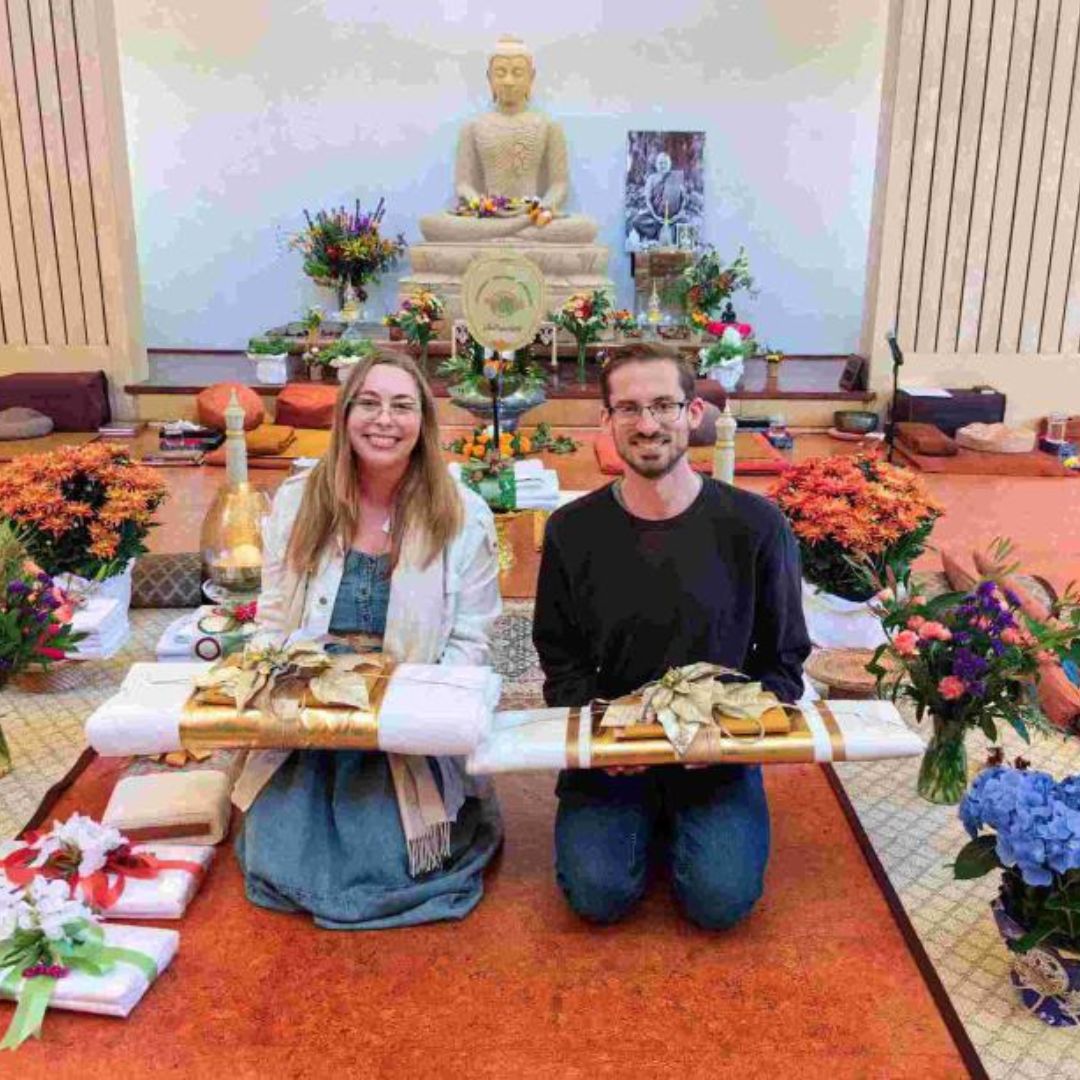Spiritual Life
Fostering inner growth
DRBU strives to nurture individuals who see learning as a lifelong endeavor that encompasses all spheres of life, including the spiritual. By spiritual practice, or cultivation, we mean nothing more than that which enables the individual to “look within” and attend more closely to their own heart and mind.
The aim of Spiritual Life is not to prescribe any particular belief or methodology, but to encourage students to open up the space needed to pursue these deeper reflections. Ultimately, it is up to each student to determine what cultivation means to them and how it is best pursued.
A Spiritual Community
A unique quality of our campus is the presence of Buddhist monks and nuns engaged in a life devoted to spiritual practice. Students are able to witness first-hand the living tradition of Buddhist monasticism and its role in developing a life of simplicity and inner wisdom.
A Diversity of Practice
A number of spiritual practices are available on a daily basis, including meditation and traditional Buddhist ceremonies led by monks and nuns. Students are welcome to join these practices whenever they wish, or develop individual or group practices that reflect their unique spiritual needs and aspirations.
Spiritual Mentorship
Spiritual Life is supported by DRBU’s chaplains who serve as spiritual mentors for the community. In addition to serving as a resource for individual students, chaplains host events, workshops, and check-ins that offer students space to reflect on their spiritual journeys.
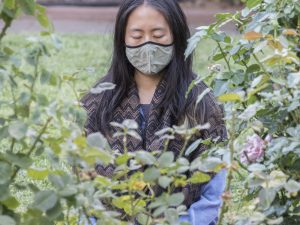
Student joins in on daily meditation at Sudhana Center.
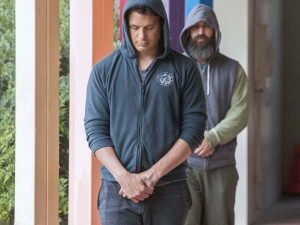
Students walk meditatively around the Sudhana courtyard during a Contemplative Exercise Immersion.
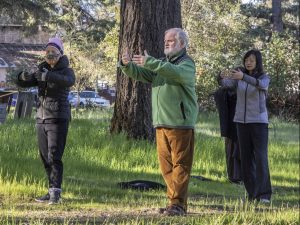
Dean of Academics Professor Verhoeven leads students in a standing meditation exercise during Buddhist Hermeneutics.
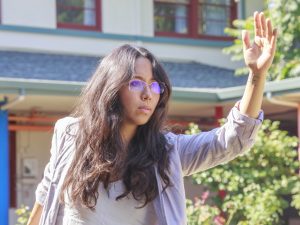
Students practices yoga in the Sudhana Courtyard.
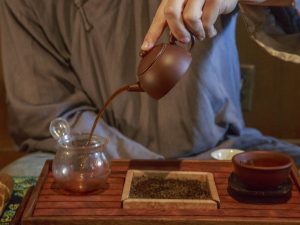
Tea making and serving can also be a contemplative practice.
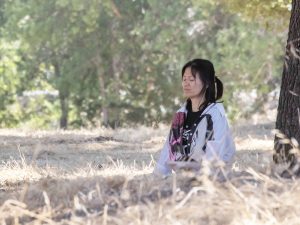
Student meditates under a Douglas Fir tree in back grove during a Contemplative Exercise Immersion on nature.
